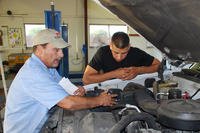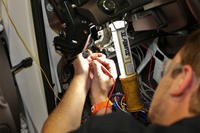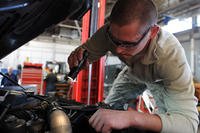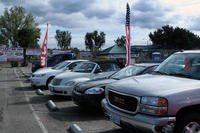Being aware of vehicle recalls is tremendously important for car owners. Recalls are intended to correct defects before they cause problems for you and your vehicle. Manufacturers are required to alert original car owners of any recall, but when you’re away from home for months at a time, these notices can slip through the cracks. Plus, if you are not the first owner of the car, you will not receive these notices at all. Fortunately, it’s a simple process to check on the recall status of your car, and fix (for free!) any outstanding issues, so you can drive with confidence when you return home.
Understand the Importance of Recalls
Many recalls concern relatively minor issues, but some tackle problems that can have a profound impact on vehicle safety. For example, the recall holding the record for being the largest ever in U.S. history is ongoing, and it involves close to 70 million vehicles equipped with Takata air bags. These air bags are being recalled because if they inflate during a collision, they could cause a dangerous explosion that pelts the vehicle's interior with hot shrapnel.
If you are away from home at the time a recall is issued, ask a family member or friend to have your vehicle fixed in your absence. It’s a simple and free process, and it can help ensure that your vehicle is safe to drive upon your return.
Identify Your Car's Vehicle Identification Number
If you're not the first owner and would like to know if your vehicle has been touched by a recall, you'll need your car's vehicle identification number, or VIN. The VIN is a code that specifically identifies your vehicle. It's usually 17 characters long, but it may be shorter in vehicles made prior to 1981.
Your car's VIN is located on the driver's-side corner of the car where the dashboard joins the windshield. It may also be found at the base of your car's driver's-side door post, where the front door latches. Your car's VIN is also listed in your car insurance policy, as well in your vehicle title and registration documents.
Check for Recalls Online
Once you have your car's VIN in hand, it's time to go online to see if there are outstanding recalls. The National Highway Traffic Safety Administration offers a useful tool that allows you to check if your car has been recalled. This tool covers all recalls issued in the past 15 years. The tool only identifies open recalls that haven't been addressed by the owner. This helps you avoid the hassle of initiating follow-up on recall repairs that have already been made.
Contact the Dealer
If a recall is in effect, all dealerships carrying the affected vehicle marque are required by law to make the necessary repairs free of charge. (It's not required that you take it in to the dealer location where the purchase was made.) If you're the car's first owner and you've received a recall notice in the mail, it's important to set up an appointment with the dealer immediately. If the recall is large, there could be a waiting list, and your prompt response will help pave the way for speedy repairs.
Vehicle recalls work quite powerfully to improve the safety of cars currently on the road. If you’ve missed a notice, no problem—it’s easy to gain peace of mind from afar with just a click of a mouse.
About the Author
Warren Clarke is an automotive journalist for CARFAX who keeps up with technology and safety trends in the auto industry. He’s passionate about educating consumers about recall safety to keep families safe when it comes to car buying and ownership.










